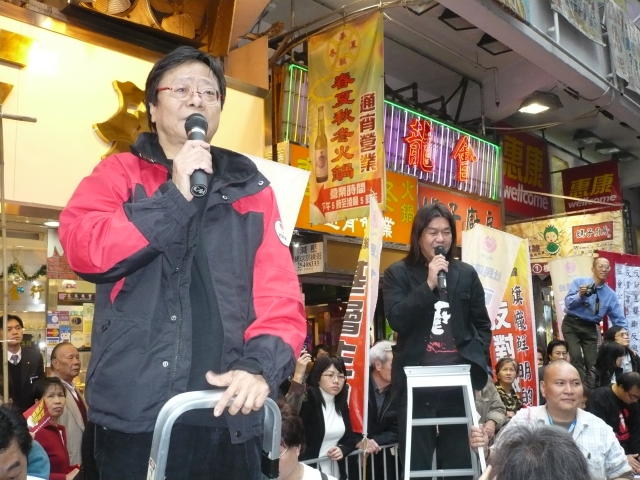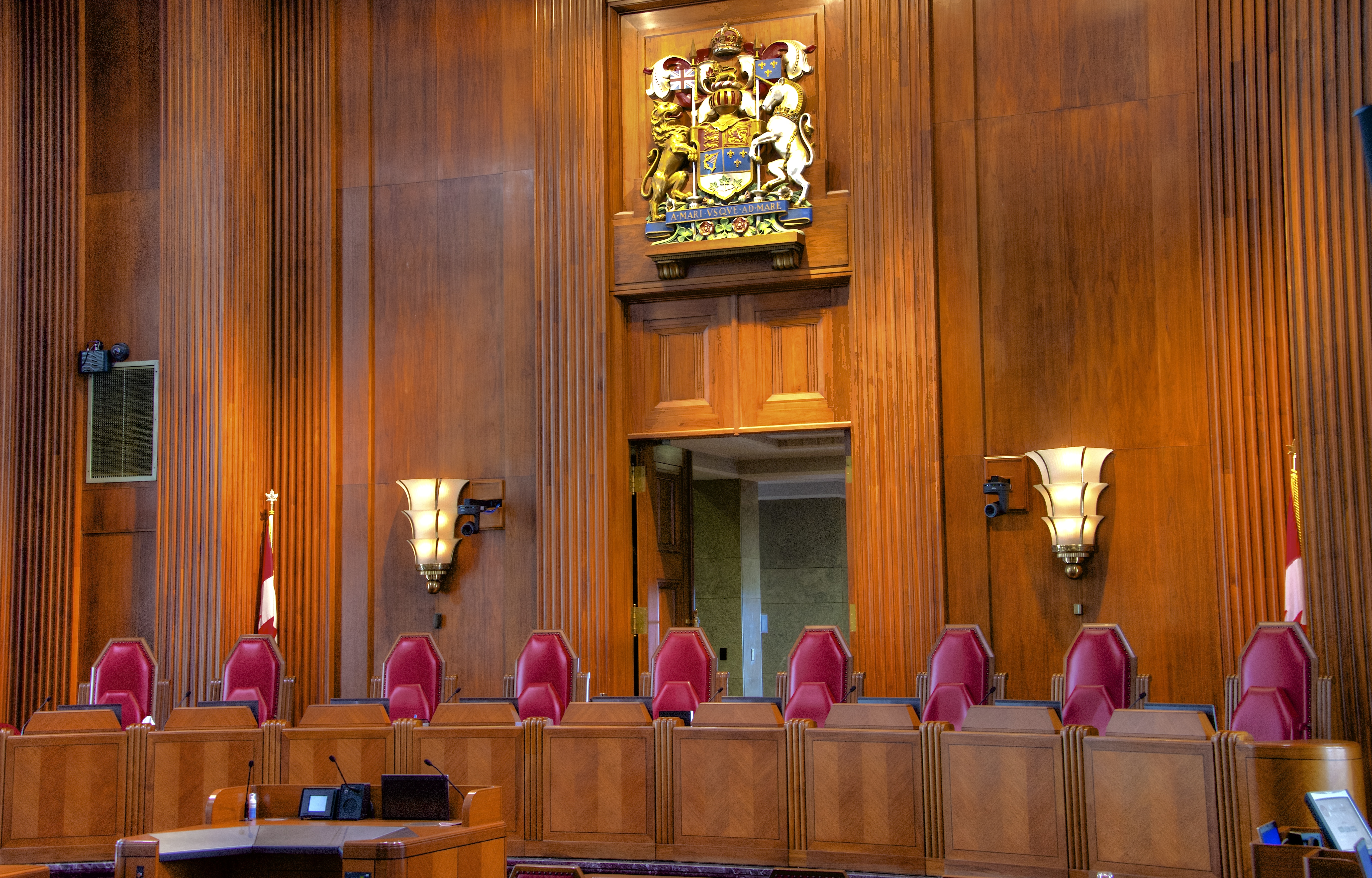|
Politics Of Hong Kong
The politics of Hong Kong takes place in a framework of a political system dominated by its quasi-constitutional document, the Hong Kong Basic Law, its own legislature, the Chief Executive as the head of government and of the Special Administrative Region and of a politically constrained multi-party presidential system. The Government of the Hong Kong Special Administrative Region of the People's Republic of China is led by the Chief Executive, the head of government. The Basic Law, Hong Kong's constitutional document, was approved in March 1990 by National People's Congress of China, and entered into force on 1 July 1997, when sovereignty of Hong Kong was transferred to China (PRC), ending over one and a half centuries of British rule. Hong Kong became a Special Administrative Region (SAR) of the PRC with a high degree of autonomy in all matters except foreign affairs and defence, which are responsibilities of the PRC government. In accordance with Article 31 of the C ... [...More Info...] [...Related Items...] OR: [Wikipedia] [Google] [Baidu] |
Sino-British Joint Declaration
The Sino-British Joint Declaration was a treaty between the governments of the United Kingdom and People's Republic of China signed in 1984 setting the conditions in which Hong Kong was transferred to Chinese control and for the governance of the territory after 1 July 1997. Hong Kong had been a colony of the British Empire since 1842 after the First Opium War and its territory was expanded on two occasions; first in 1860 with the addition of Kowloon Peninsula and Stonecutters Island, and again in 1898 when Britain obtained a 99-year lease for the New Territories. The date of the handover in 1997 marked the end of this lease. The Chinese government declared in the treaty its basic policies for governing Hong Kong after the transfer. A special administrative region would be established in the territory that would be self-governing with a high degree of autonomy, except in foreign affairs and defence. Hong Kong would maintain its existing governing and economic systems s ... [...More Info...] [...Related Items...] OR: [Wikipedia] [Google] [Baidu] |
Standing Committee Of The National People's Congress Of China
The Standing Committee of the National People's Congress (NPCSC) is the permanent body of the National People's Congress (NPC), the national legislature of the People's Republic of China. It exercises the powers of the NPC when it is not in session. The NPCSC is composed of a chairman, vice chairpersons, a secretary-general, and regular members, all of whom are elected by regular NPC sessions. The day-to-day operations of the Standing Committee are handled by the Council of Chairpersons of the Standing Committee of the National People's Congress, Council of Chairpersons, which is composed of the chairman, vice chairpersons, and the secretary-general. Although the parent NPC officially has superiority over the Standing Committee, and certain authorities are not delegated, the Standing Committee is generally viewed to have more ''de facto'' power, as the NPC convenes only once a year for two weeks, leaving its Standing Committee the only body that regularly drafts and approves d ... [...More Info...] [...Related Items...] OR: [Wikipedia] [Google] [Baidu] |
Common Law
Common law (also known as judicial precedent, judge-made law, or case law) is the body of law primarily developed through judicial decisions rather than statutes. Although common law may incorporate certain statutes, it is largely based on precedent—judicial rulings made in previous similar cases. The presiding judge determines which precedents to apply in deciding each new case. Common law is deeply rooted in Precedent, ''stare decisis'' ("to stand by things decided"), where courts follow precedents established by previous decisions. When a similar case has been resolved, courts typically align their reasoning with the precedent set in that decision. However, in a "case of first impression" with no precedent or clear legislative guidance, judges are empowered to resolve the issue and establish new precedent. The common law, so named because it was common to all the king's courts across England, originated in the practices of the courts of the English kings in the centuries fo ... [...More Info...] [...Related Items...] OR: [Wikipedia] [Google] [Baidu] |
Hong Kong Court Of Final Appeal
The Hong Kong Court of Final Appeal (HKCFA) is the final appellate court of Hong Kong. It was established on 1 July 1997, upon the establishment of the Hong Kong Special Administrative Region, replacing the Judicial Committee of the Privy Council as the highest judicial institution under Hong Kong law. As defined in Articles 19 and 85 of the Hong Kong Basic Law, the Court of Final Appeal "exercises judicial power in the Region independently and free from any interference." The Hong Kong Court of Final Appeal Ordinance and the Hong Kong Court of Final Appeal Rules set out the detailed functions and procedures of the court. The court meets in the Court of Final Appeal Building located in Central, Hong Kong. Court cases can be viewed online through live broadcast and webcast playback from April 2025 onward under a pilot scheme of 2 years. Role of the court From the 1840s to 30 June 1997, Hong Kong was a British Dependent Territory, and the power of final adjudication on ... [...More Info...] [...Related Items...] OR: [Wikipedia] [Google] [Baidu] |
Court Of Last Resort
In most legal jurisdictions, a supreme court, also known as a court of last resort, apex court, high (or final) court of appeal, and court of final appeal, is the highest court within the hierarchy of courts. Broadly speaking, the decisions of a supreme court are binding on all other courts in a nation and are not subject to further review by any other court. Supreme courts typically function primarily as appellate courts, hearing appeals from decisions of lower trial courts, or from intermediate-level appellate courts. A supreme court can also, in certain circumstances, act as a court of original jurisdiction. Civil law (legal system), Civil law states tend not to have a single highest court. Some federations, such as the United States, also do not have a single highest court. The highest court in some jurisdictions is not named the "Supreme Court", for example, the High Court of Australia. On the other hand, in some places the court named the "Supreme Court" is not in fact th ... [...More Info...] [...Related Items...] OR: [Wikipedia] [Google] [Baidu] |
Executive Council Of Hong Kong
The Executive Council of Hong Kong (ExCo) is the Cabinet (government), cabinet of the Government of Hong Kong, acting as a formal body of advisers to the Chief Executive of Hong Kong that serves as a core policy-making organ assisting the chief executive. It is analogous to other Executive Council (Commonwealth countries), Executive Councils in the Commonwealth of Nations, Commonwealth such as the Federal Executive Council (Australia), Federal Executive Council of Australia, the Executive Council of New Zealand, and the Privy Council (United Kingdom), Privy Council of the United Kingdom. Under the presidency of the chief executive, the executive council consists of 21 Principal officials of Hong Kong, Official Members (the most senior of these being the Chief Secretary for Administration, Chief Secretary of Hong Kong, head of the Government Secretariat (Hong Kong), Government Secretariat and chair of the Policy Committee), and 16 Non-official Members (also known as Minister ... [...More Info...] [...Related Items...] OR: [Wikipedia] [Google] [Baidu] |
Premier Of The People's Republic Of China
The premier of China, officially the Premier of the State Council of the People's Republic of China, is the head of government of the People's Republic of China (PRC) and leader of the State Council. This post was established in 1911 near the end of the Qing dynasty, but the current post dates to 1954, five years after the establishment of the PRC. The premier is the third-highest ranking official in China's political system after the general secretary of the Chinese Communist Party ( party leader) and the president ( state representative), and holds the highest rank in the civil service of the central government. The premier presides over the plenary and executive meetings of the State Council, and assumes overall leadership over the State Council's work. The premier also signs administrative regulations passed by the State Council and signs the orders approving the appointment and removal of deputy-ministerial level officials of the State Council, as well as chief exec ... [...More Info...] [...Related Items...] OR: [Wikipedia] [Google] [Baidu] |
Functional Constituency (Hong Kong)
In the Legislative Council of Hong Kong, a functional constituency is a professional or special interest group that elects members to the legislature. Eligible voters in a functional constituency may include natural persons as well as other designated legal entities such as organisations and corporations. (See: legal personality) History The concept of functional constituencies (FC) in Hong Kong was first developed in the release of "Green Paper: A Pattern of District Administration in Hong Kong" on 18 July 1984 when indirect elections were introduced to the Legislative Council for the first time. The paper suggested that the Legislative Council create 24 seats with 12 seats from different professional interest groups. The 11 original functional constituencies created in 1985 were: * Commercial (First), First Commercial (Hong Kong General Chamber of Commerce, HKGCC) * Commercial (Second), Second Commercial (Chinese General Chamber of Commerce, CGCC) * Industrial (First), First ... [...More Info...] [...Related Items...] OR: [Wikipedia] [Google] [Baidu] |
Election Committee
The Election Committee is the electoral college in Hong Kong that selects the Chief Executive (CE) and, since 2021, elects 40 of the 90 members of the Legislative Council. Established by Annex I of the Basic Law of Hong Kong which states that "the Chief Executive shall be elected by a broadly representative Election Committee in accordance with this Law and appointed by the Central People's Government (State Council)." It is formed and performs its selection function once every five years, even in the event of a CE not completing their term. The membership of the Election Committee was expanded to 1,500 under the massive overhaul of the electoral system in 2021. The Election Committee has been criticised for its "small-circle" electoral basis and its composition favouring pro-Beijing and business interests. History The Sino-British Joint Declaration of 1984 provides that the Chief Executive "shall be selected by elections or through consultations held locally and be ap ... [...More Info...] [...Related Items...] OR: [Wikipedia] [Google] [Baidu] |




